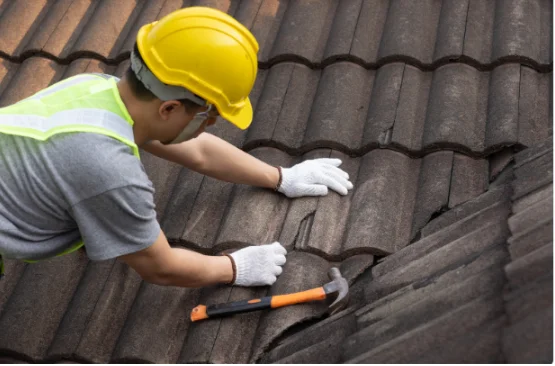Homeownership, engaging contractors for renovations or repairs is a common practice. Whether it’s a large-scale remodel or minor fixes, understanding the extent to which homeowners insurance covers contractor-caused damages is paramount. This article delves into the nuances of homeowners insurance coverage, highlighting what is and isn’t protected, especially concerning damages versus poor workmanship, and provides guidance on how to mitigate risks when hiring contractors.
Scope of Homeowners Insurance Coverage
Homeowners insurance acts as a safety net, offering protection against a myriad of unforeseen events, including certain mishaps that might occur during home improvement projects. If a contractor accidentally causes a fire, damages personal belongings, or even harms your neighbor’s property, your policy likely provides coverage.
However, a clear distinction exists between accidents and the quality of workmanship. If the issue at hand involves poor workmanship, such as shoddy installation or unsatisfactory design, homeowners insurance typically steps back, leaving homeowners to address these concerns directly with the contractors.
Filing an Insurance Claim for Poor Workmanship
The realization that homeowners insurance doesn’t cover poor workmanship can be frustrating. If a contractor’s negligence results in subpar work, homeowners might find themselves in a predicament. While accidental damages might be covered, insurance policies draw a line when it comes to the quality of the work provided. In such cases, homeowners are advised to first seek resolution with the contractor. Failing that, lodging a complaint with the licensing agency or pursuing legal action becomes the next course of action. This pathway, however, can be time-consuming and may not always result in a satisfactory resolution.
Examples of Damage vs. Poor Workmanship
To illustrate the coverage landscape, consider the following scenarios:
- Incorrect electrical work by an electrician sparks a fire. Damages to the home and belongings from the fire may be covered, but not the expenses to correct the faulty wiring.
- A contractor’s hurried work on a built-in entertainment unit results in a collapse. The policy may pay for damaged belongings but not for rebuilding the unit itself.
- A plumber’s poor installation leads to leaking pipes. While homeowners insurance might cover the resultant water damage to walls and furniture, the cost of reinstalling the pipes falls outside its scope.
These examples underscore the insurance policy’s role in mitigating damage costs while excluding costs related to correcting the poor workmanship itself.
Dealing with Contractor-Related Damages to Neighbor’s Property
A scenario less discussed but equally important is when a contractor damages a neighbor’s property. In such cases, it’s the contractor’s responsibility to address the damages through their insurance. Understanding the protocol for such incidents can alleviate tensions and ensure proper channels are followed for resolution.
Precautionary Measures Before Hiring a Contractor
The cornerstone of avoiding complications with poor workmanship and insurance limitations lies in diligent contractor selection. Here’s how to safeguard your project:
Verifying Insurance
Ensure the contractor carries insurance that can cover damages they might cause. This not only protects your property but can also streamline the reimbursement process should an incident occur.
Reviewing Past Work
Evaluating a contractor’s portfolio and reading reviews can provide insights into their work quality and reliability. It’s also beneficial to seek recommendations from trusted sources.
Checking Licenses
Hiring a licensed contractor is crucial. Unlicensed work can lead to safety risks and code violations, potentially leaving homeowners responsible for costly corrections.
Put a Contract in Place
Hire an attorney to draft a contract to be signed by and between you and your contractor. If drafted correctly, contracts can hold a contractor responsible for some or all of the damages that occur due to their negligence or poor workmanship.
Conclusion
Navigating the intricacies of homeowners insurance in the context of contractor-caused damages reveals a critical balance. While insurance provides a layer of protection against accidental damages, it distinctly excludes poor workmanship. This delineation underscores the importance of thorough research and careful selection when hiring contractors.
By taking proactive steps to verify a contractor’s credentials, insurance, and past work quality, homeowners can better position themselves to mitigate risks and ensure that their home improvement projects are both successful and satisfying.
FAQs
What if a contractor’s work reveals pre-existing issues not covered by my insurance?
If a contractor uncovers pre-existing issues that are not covered by your homeowners insurance, such as mold or structural weaknesses, you are generally responsible for the cost of these repairs. It’s important to address these issues directly with the contractor to determine the best course of action.
Does homeowners insurance cover unauthorized work done by a contractor?
Homeowners insurance typically does not cover unauthorized work. If a contractor performs work beyond the agreed scope without your approval, you may need to resolve the matter directly with the contractor or through legal means.
Are DIY repairs or improvements by homeowners covered by insurance if they lead to damage?
Homeowners insurance may not cover damages resulting from DIY projects due to improper installation or repair. Coverage is typically designed for accidental damage, not for workmanship issues, whether by a contractor or the homeowner.

